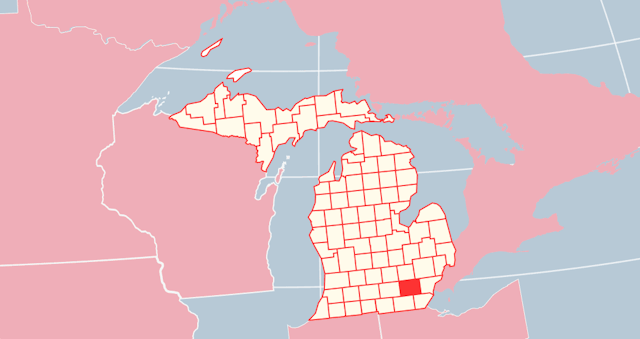Rehabs in Washtenaw
Washtenaw is one of the counties of Michigan. Ann Arbor is its seat and largest city. As for the population, it had almost 400,000 residents according to the 2020 census.
Statistics
Washtenaw statistics of overdose deaths become more and more alarming year by year. According to the Health Department data, opioid-related deaths have increased during the last four to five years. For example, compared to 29 cases in 2011, there were 73 overdoses in 2021.
That is why we have prepared this guide about rehabs in Washtenaw County.
Treatment Process
If you are among the group who suffer from a lack of sobriety, you should seek help in a rehab facility. Don’t postpone your healing. Look for support as soon as possible. Washtenaw rehabs are ready to support you in this process.
Evaluation
Are you concerned with your chemical use habits but don’t know whether that is dependency or not? Then do not hesitate to do a drug and alcohol assessment.
Evaluation includes both consultations and screenings. Specifically, drug testing is carried out through screening tests, hair, oral fluid, and/or urine testings. Usually, if there are positive results, the specialists also carry out confirmatory tests. By taking samples, the medical staff also assesses the severity of the addiction.
The other way of evaluating the patient is through interviews. Generally, it takes several consultations to fully grasp the behavioral disorders of the patients. But to put it roughly, the clinicians try to answer the following questions:
- What type of drug or alcohol does the person consume? How often does he use it? How much does she or he consume it?
- What are the mental and physical health issues?
- Are there risky behaviors?
Medical Treatment
Those who have passed this stage and got a diagnosis of addiction have to find a rehabilitation center. Then, they should get medical help.
Very importantly, the 1st step toward recovery is detox. It is a procedure when the body is cleaned from substances. Often, it takes a couple of days or even a month to complete it.
Therapy
Now when the body is free of dangerous substances, it is time to think of behavioral changes. Otherwise, cravings will restart. As a result, the same cycle might continue.
Change is possible through cognitive and psychological work. The patients can choose between individual and group therapy. However, family sessions are also available. Simultaneously, those sessions are sometimes accompanied by medication when necessary.
Types of Rehabs
There are different classifications of rehabs. The first one is between private and public ones. Of course, private rehabilitation fees are higher. But luxury centers are even more expensive. In fact, they cost thousands of dollars. The fees are not affordable for most people. But obviously, those facilities ensure the most upscale services and luxurious amenities.
As mentioned above, public clinics are more affordable. Yet, there are centers that provide services at a reduced cost or even for free. However, only a certain group of people can be eligible for this service. State-funded programs are for assisting individuals from low-income families.
The other classification is between inpatient (IP) and outpatient (OP) treatment. Also, there are partial hospitalization programs (PHP). While IP includes hospitalization, OP allows you to recover from the comfort of your home. The latter ensures flexibility of scheduling and lower costs.
OP is a more suitable solution. Yet, IP seems to be more effective in bringing long-term recovery. That is the common understanding among medical professionals.
Confidentiality
Above all, your clinical records are private information. In other words, nobody except your family members and hospital staff has access to that information. Other people can have access to that information only in two cases:
- Once you give permission.
- When the law requires it.
Teen Rehabs
When your child suffers from addiction, you have three options:
- Convince him or her to voluntarily go to a clinic.
- Hire an interventionist to speak to your teen.
- Force your child to go to a specialized hospital.
Involuntary involvement is a possible option in Michigan. Just be sure that you have done everything else before taking stricter measures.

